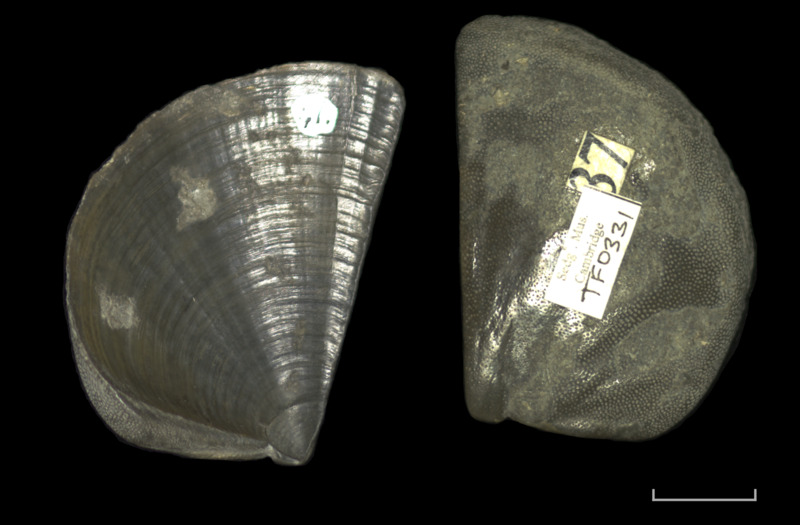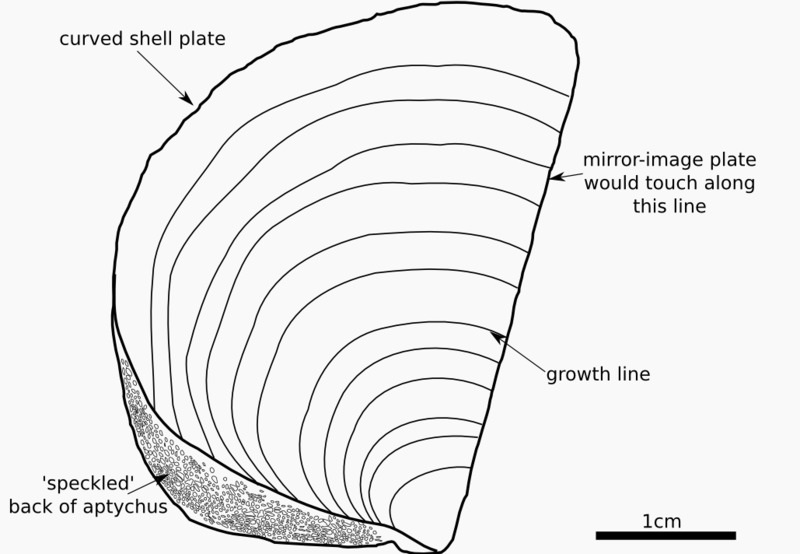- Home
- Rocks
- Type fossils
- Fossil Specimens
- Minerals
- Glossary
- Stratigraphic Chart
- Michel-Levy Chart
- Classification of igneous rocks
- University of Cambridge
- Department of Earth Sciences
- ESC Library
- Moodle
- Sedgwick Museum
- DoITPoMS
- Mindat.org
- Microfossils
- Bryozoans
- Webmineral
- Tree of Life
- CrystalMaker
- Virtual Microscope
TF0331 Ammonite Aptychus
Title
TF0331
Ammonite Aptychus
Subject
Location
Kimmeridge Clay, Roslyn Pit, ElyDescription
Species
latus Parkinson
Stratigraphic Range
Jurassic
Taxonomy
Phylum: Mollusca
Class: Cephalopoda
Subclass: Ammonoidea
Order: Ammonitida
Class: Cephalopoda
Subclass: Ammonoidea
Order: Ammonitida
Distinctive Features
Straight edge
Growth lines
Curved plate
Growth lines
Curved plate
Preservation
Calcite
Disarticulated from ammonite shell
Disarticulated from ammonite shell
Advanced notes
One could be forgiven for thinking, at first glance, that this was the valve of a bivalve mollusc. However further interrogation of the fossil: the shape, the fact that the growth lines are on one side of the shell but there is no sign of adductor muscle scars, palial sinuses or other characteristic bivalve signs, and the 'bobbled' texture on the plate, leads us to the conclusion that this is not from a bivalve.
Rare examples of ammonite shells with aptychi preserved articulated have shown these plates to be located in the body chamber of ammonites. Upon death most pairs of aptychi disarticulate and hence they are found as single plates, such as this one.
Rare examples of ammonite shells with aptychi preserved articulated have shown these plates to be located in the body chamber of ammonites. Upon death most pairs of aptychi disarticulate and hence they are found as single plates, such as this one.
Citation
“TF0331
Ammonite Aptychus,” 1A Collections, accessed April 9, 2024, https://wserv3.esc.cam.ac.uk/p1acollections/items/show/78.
Ammonite Aptychus,” 1A Collections, accessed April 9, 2024, https://wserv3.esc.cam.ac.uk/p1acollections/items/show/78.


